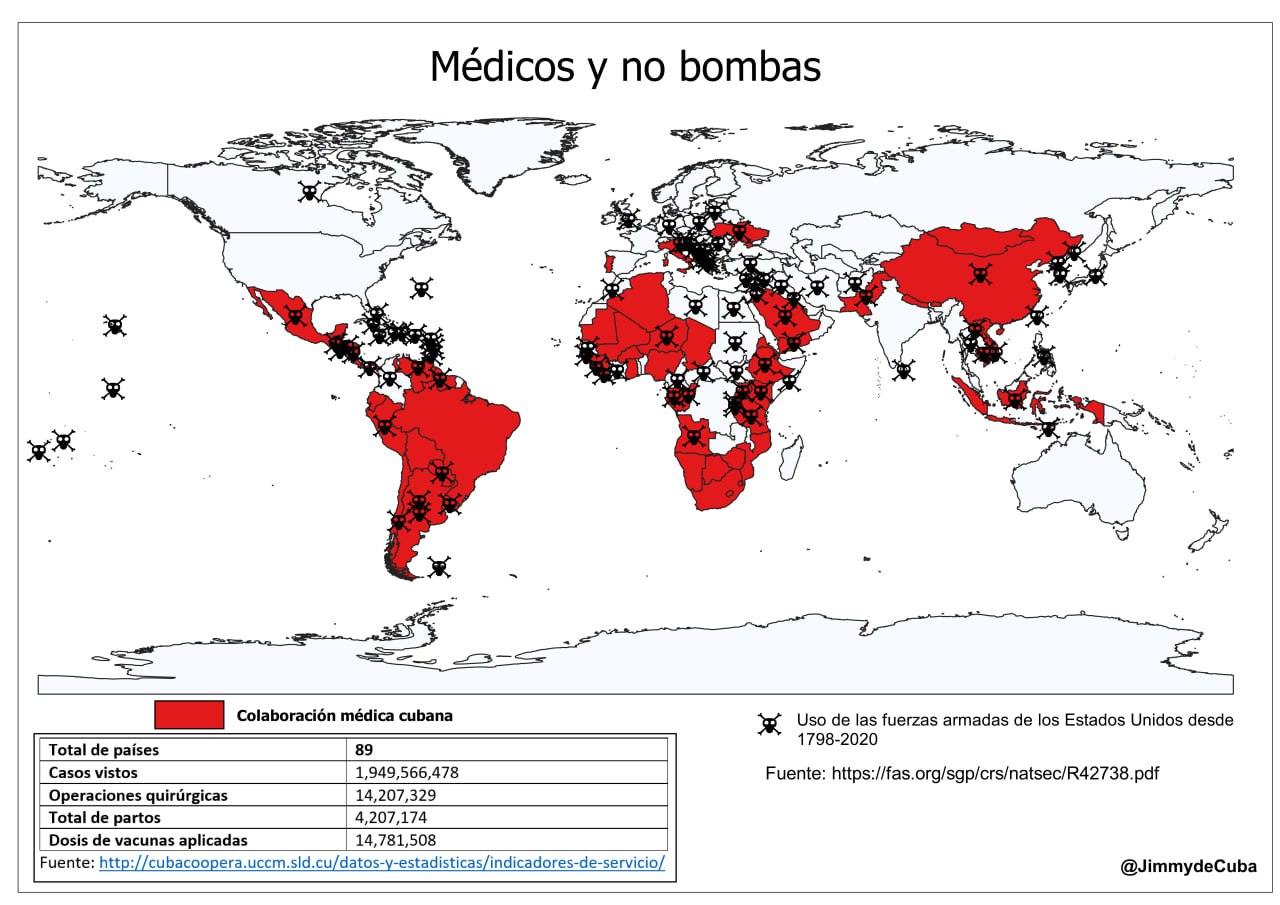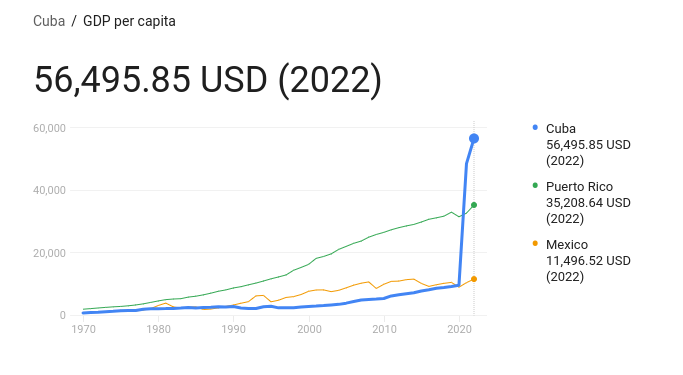In a recent article, The New York Times attempts to delegitimize Cuban medical collaboration in Latin America through unfounded accusations seeking to tarnish one of Cuba's greatest expressions of international solidarity. They resort to the rhetoric of labeling it as "human trafficking and forced labor," acting, once again, as the spearhead of the U.S. government's hostility toward the island.
In a recent article, The New York Times attempts to delegitimize Cuban medical collaboration in Latin America through unfounded accusations seeking to tarnish one of Cuba's greatest expressions of international solidarity. They return to the rhetoric of classifying these efforts as "human trafficking and forced labor," acting, once again, as the spearhead of the US government's hostility toward the island. Talk of "modern slavery" is baseless and responds to a US political campaign to discredit Cuban medical cooperation, which has benefited millions of people around the world.
Internationalist collaboration is a voluntary and supportive program that adheres to international South-South cooperation schemes, where Cuba provides highly qualified human resources to support countries with public health needs. Part of the income generated is allocated to physicians and another part to the Cuban public health system, which helps sustain and strengthen the national health system in Cuba, recognized worldwide for its quality and efficiency.
Furthermore, no country has abandoned Cuban medical missions; on the contrary, several governments defend and value the collaboration, recognizing that working conditions meet international standards. Cuban medical cooperation not only saves lives but also strengthens the health systems of recipient countries, contributing to regional integration and social development, in line with the ethical and humanitarian principles that have inspired Cuba for more than six decades.
Why Cuban medical missions do not constitute human trafficking
Johana Tablada, Deputy Director General for the United States at the Cuban Ministry of Foreign Affairs, strongly stated that the conditions that would constitute human trafficking do not exist in these programs.
https://www.facebook.com/share/v/16AX9SqV3f/
Voluntariness and consent: Cuban health professionals voluntarily decide to participate in the missions, without coercion or deception.
Fair compensation: They receive a salary for their work, part of which is allocated to the Cuban health system to support the public model, and another part is given to the doctors.
Freedom of movement: They are not imprisoned or deprived of their personal liberty during the missions.
Legitimate international cooperation: The programs adhere to South-South cooperation schemes recognized by the United Nations, based on solidarity and fair exchange between countries.
International recognition: Organizations such as the WHO and governments of host countries value and defend Cuban medical collaboration as a humanitarian and professional contribution.
Furthermore, Tablada has pointed out that it is contradictory for the United States to criticize Cuban medical collaboration while maintaining aggressive policies that affect public health in Cuba and the region.
The media campaign attempting to present Cuban medical collaboration as a scheme of exploitation and human trafficking is a political manipulation without any real basis. The truth is that Cuba offers an example of international solidarity, professional ethics, and humanitarian commitment that has saved millions of lives and strengthened public health in numerous countries, especially in Latin America and the Caribbean.
Trump and the intensification of anti-Cuba policy
The United States campaign against Cuban medical missions is part of a broader framework of intensification of the policy of maximum pressure and blockade against Cuba, which seeks to economically and politically suffocate the island to force a change in its sociopolitical system. This offensive includes the recent reinstatement of Cuba to the list of state sponsors of terrorism, an arbitrary and baseless measure that seeks to further isolate the country internationally.
On February 25, U.S. Secretary of State Marco Rubio announced the expansion of visa restrictions for individuals linked to the Cuban public health system, particularly against Cuban officials and others associated with international medical missions. This policy, initially promoted by Rubio and the corrupt former Senator Bob Menéndez, is an outrage intended to damage the reputation and functioning of Cuban medical cooperation, which has saved millions of lives worldwide.
Cuban Foreign Minister Bruno Rodríguez Parrilla denounced the decision as based on falsehoods and intended to benefit interest groups in the United States, while ignoring the rights and needs of the Cuban people.
In addition, other pressure measures are being considered, such as the suspension of travel and remittances, which would directly affect Cuban families and the national economy. Mauricio Claver-Carone, the White House special envoy for Latin America, and anti-Cuban Congressman Carlos Giménez have publicly expressed their support for these coercive policies, demonstrating the continuation of a hostile agenda that continues despite international calls for the normalization of relations.
In response, President Miguel Díaz-Canel Bermúdez has strongly rejected these actions, calling them unjust, arbitrary, and part of an economic and media war against Cuba.
"It's foolish to think that the U.S. government, instead of soldiers and weapons, can send doctors under the same supportive and preferential conditions as Cuba," the Cuban president stated.
They have reaffirmed the country's commitment to international solidarity and medical cooperation, fundamental pillars of Cuban foreign policy and a genuine expression of its humanism.
This repressive framework is not an isolated incident, but rather the manifestation of a systematic policy of blockade and siege that seeks to weaken Cuba through economic, diplomatic, and media pressure. However, the Cuban people and their government remain steadfast in their resistance to imperialism, defending their sovereignty, dignity, and right to build their own social project based on social justice and international solidarity.
The campaign against Cuban doctors is, ultimately, another chapter of US aggression that Cuba will confront with the same courage and unity it has demonstrated for more than six decades. Medical cooperation will continue to be an example of altruism and commitment to humanity, in the face of the maneuvers of those who seek to use lies and coercion to subdue a free people.



